Editizm delivers the fastest proofreading service within 1-3 hours – Email us your essay at support@editizm.com
What Is Plagiarism?
Plagiarism is the act of presenting someone else’s ideas, words, or work as your own without giving them proper credit. It is a form of academic and intellectual dishonesty that is considered unethical and is typically prohibited in educational institutions, professional settings, and various forms of content creation. Plagiarism can take various forms, including:
- Direct Copying: Using someone else’s exact words without quotation marks or proper citation.
- Paraphrasing without Attribution: Rewriting someone else’s work in your own words without acknowledging the original source.
- Self-Plagiarism: Submitting your own previously submitted work without proper citation or permission.
- Using Someone Else’s Ideas: Presenting someone else’s ideas, concepts, or theories as if they are your own.
- Collaborative Cheating: Submitting work that was done collaboratively without proper acknowledgment of each contributor’s input.
Plagiarism is taken seriously in academic and professional settings because it undermines the principles of honesty, integrity, and the pursuit of knowledge. Educational institutions often have strict policies against plagiarism, and consequences can include academic penalties, such as failing assignments or courses, and even expulsion.
To avoid plagiarism, it’s essential to always properly cite and reference sources when using someone else’s work, ideas, or words. Common citation styles include APA, MLA, Chicago, and others, depending on the field of study. Additionally, understanding when and how to use quotations, paraphrasing, and citing sources correctly is crucial to maintaining academic and professional integrity.
How to Avoid Plagiarism?
Avoiding plagiarism involves respecting the intellectual property of others and giving proper credit when using someone else’s work, ideas, or words. Here are some tips to help you avoid plagiarism:
1. Understand Plagiarism:
- Familiarize yourself with the various forms of plagiarism, including direct copying, paraphrasing without proper attribution, and self-plagiarism.
2. Use Quotation Marks:
- When directly quoting someone else’s words, use quotation marks and provide an accurate citation to the source.
3. Paraphrase Properly:
- If you’re rephrasing someone else’s work, ensure that you completely understand the original content and express it in your own words. Additionally, provide proper citation to the original source.
4. Cite Sources:
- Always provide proper citations for any information, ideas, or words that are not your own. This includes books, articles, websites, interviews, and any other sources you use in your work.
5. Use Citation Styles:
- Familiarize yourself with the citation style preferred by your institution or publication (e.g., APA, MLA, Chicago). Consistently apply the chosen style throughout your work.
6. Keep Detailed Notes:
- Keep accurate and detailed notes of all the sources you consult while researching. This will make it easier to create accurate citations later.
7. Manage Your Time Effectively:
- Procrastination can lead to rushed work and a higher likelihood of unintentional plagiarism. Plan your time well to avoid last-minute pressures.
8. Understand Collaborative Work:
- When collaborating with others, clearly define and document each person’s contributions. Give credit to each contributor appropriately.
9. Use Plagiarism Detection Tools:
- Use plagiarism detection tools like Turnitin and others to check your work for unintentional plagiarism before submitting it.
10. Seek Permission for Reuse:
- If you want to reuse your own work or use someone else’s work in a way that goes beyond fair use, seek permission from the copyright holder.
11. Educate Yourself:
- Stay informed about academic integrity policies at your institution. Attend workshops or use online resources to understand the principles of proper citation and avoiding plagiarism.
12. Seek Help:
- If you’re uncertain about how to properly cite a source or if you have questions about plagiarism, don’t hesitate to ask your instructors or mentors for guidance.
By adopting these practices and maintaining a commitment to academic and professional integrity, you can significantly reduce the risk of plagiarism in your work. Remember, giving credit to the original creators not only prevents plagiarism but also acknowledges the contributions of others to the body of knowledge.
